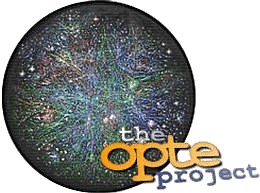There is no doubt that it is the time when Internet has become an integral part of life of our modern society. We feel somehow «naked» without it. The value of it grows rapidly from year to year.
|
| Internet — Modern Cyberspace |
|
|
The Internet is the form of cyberspace nowadays. On the one hand this new information space gives us practically infinite freedom in time. This allows people of different age and race to change their own character, own personality.
 |
|
 Internet — independence Internet — independence |
 |
 Internet — dependence Internet — dependence |
Now instead of expressing ideas as painting city walls with graffiti, one creates website. But in this case, no one breaks any rules. As well as no one forces anyone to visit some website. With the use of Internet people can realize themselves as they wish, the way they cannot you do it in the real life.
On the other hand, the Net — is environment for Internet-dependant people. That is when the cyberspace replaces the real life, when person loses its human abilities.
The behaviour of navigating using hyperlinks, interaction with virtual anonymous people that disappear with the same suddenness as they appeared, and use of electronic communications when you can reply for the question the next day: everything reflects in the way of person’s behaviour in the real world.
Some people see Internet-socialising as unnatural and unhealthy and relate it to drug addiction; however, Sherry Turkle, clinical psychologist and a professor of Science, Technology and Society at MIT, believes that the distinguishment between the two is that the Internet addiction in fact fulfils a part that is missing in the «addicts» life, and this addiction allows people to play out scenarios that are lacking in their own life. |
Talking about the Internet as the environment for the cyberculture, both being inseparable, the global network itself represents a structure without any hierarchy, a system without any central item that controls every information stream. To describe such kind of structure we use a concept «rhizome» — specific term by Gilles Deleuze and Felix Guattari borrowed from botany. Rhizome — a root without a rootstock. The rhizome can be broken off in any place, but despite of it, it will renew the growth either in an old direction, or will choose new one.
A rapid development of scientific and technical progress in the West in 90s has a huge value for cyberculture blossoming. The birth of the World Wide Web became the crucial moment for the evolution of cyberculture. Being the software interface of the Internet, the Web finally made technically a reality of all these imaginary cyberpunks, who heretofore existed on the pages of the books and on TV screens only. Cyberpunk is not the science fiction anymore from this moment, but real people.
Transhumanists argue that since the dawn of man we have used tools — tools like sticks and stones, wood for carriages, coal for the industrial era. It is human nature to utilise objects for the better of the whole. The Internet and the Web is merely an evolutionary stage for humanity, and people will adapt accordingly.
|
| |
|
« cyberstuff | internet | netizens »
|
| |



